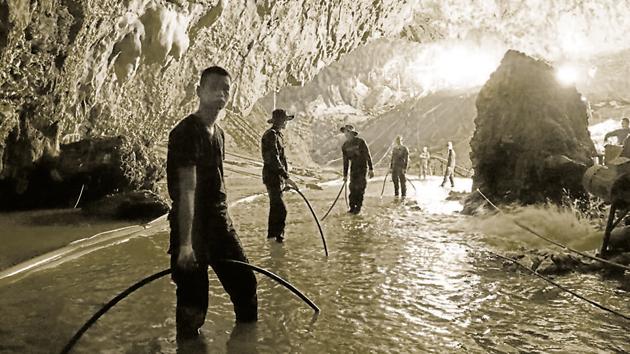A four-leaf clover is news. A beautiful rose is not
It was the rescue attempt that ensued and the increasing good news of its success that hereafter became the big story. Teams of television reporters were assigned to cover it. They stood outside the cave, spoke to the rescuers, counted the ambulances and reported from the hospital, interspersed with hours of discussion with experts about what should be done.
In the 1980s, when I started out in journalism, there was a simple but appealing question that held most of us in thrall: ‘Why are the millions of good things that routinely happen every day never considered newsworthy?’ Perhaps the most famous expression of this query was by Prince Charles. Tens of thousands of planes take off and land safely, he said, but no one reports a word about them. Yet, if on the odd occasion, one suffers a mishap it’s front page news.

The answer is, of course, blindingly obvious. First, what’s routine and regular is commonplace and taken for granted. It doesn’t deserve attention. An air crash, on the other hand, is not just unexpected but uncommon. That’s why it stands out.
More importantly, people going about their daily work, happily and successfully, is normal. Dying in a dreadful air crash is tragic and traumatic. People want to know what happened. The details, though morbid, feed an insatiable curiosity. This is a second reason why it becomes newsworthy.
Thus was born the maxim ‘good news is never news; bad news is a headline’. This week, however, one event in distant northern Thailand’s Tham Luang Cave feels as if its turned this logic on its head. The slow but steadily successful evacuation of 12 teenagers and their coach - a good news story if ever there was one - has kept me riveted to the BBC and CNN who, in turn, have provided blanket coverage stretching for hours on end.
Now, let me not get carried away. It’s the horror of what initially happened - 13 young people trapped in a cave, surrounded by rising water and, supposedly, thus stranded - that captured everyone’s attention. It seemed they were lost to us. Condemned to a slow, tortuous, inescapable death, by suffocation or drowning. But then the story started to turn.
After days of fruitless searching, divers located the 13. They were sheltering on a promontory, just above the swirling waters, but unable to escape. They were alive but trapped.
It was the rescue attempt that ensued and the increasing good news of its success that hereafter became the big story. Teams of television reporters were assigned to cover it. They stood outside the cave, spoke to the rescuers, counted the ambulances and reported from the hospital, interspersed with hours of discussion with experts about what should be done. As the boys emerged, one by one, relief and applause rippled through the reportage. And as the news got better the story grew bigger. In this instance, good news was definitely headline news. In fact, it was blanket coverage.
Yet there are good journalistic reasons why this story became so hugely irresistible. The successful rescue was not just the accomplishment of the seemingly impossible but, almost, of the unbelievable. Nothing like this had ever been attempted before. Few could have thought it would succeed. This was, therefore, more than good news. It was a miracle. Had it been routine or commonplace it would have gone unreported.
I now have the answer to the question that troubled us four decades ago. It’s not the distinction between good or bad news that makes an event worth reporting, it’s the rarity of the event. The more unlikely an outcome or the more horrible, the more we want to know about it. The peculiar and the odd stand out. The ordinary and the usual do not. A four-leaf clover is news. A beautiful rose is not.
The views expressed are personal



